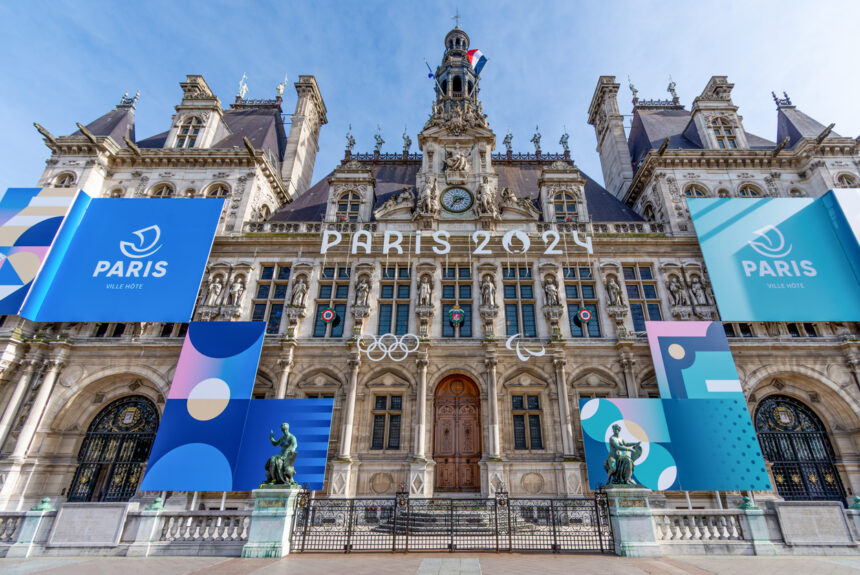Over the past two weeks, the world has had its eyes on Paris for the 2024 Olympic Games. The U.S. has enjoyed remarkable success, producing the world’s fastest man, setting records in swimming, dominating gymnastics, and running the table in the medal count. America’s athletic success at the Summer Games has inspired C3 to award our own Gold, Silver, and Bronze medals for policies that will improve energy security, lower costs, reduce emissions, and accelerate innovation.
Without further ado, here are the medal winners for the 2024 Energy and Climate Olympic Games.
Bronze: Pro-Growth Tax Policies
Pro-growth tax policies, which include immediate expensing and technology-neutral tax credits for nascent industries, take the Bronze in this year’s Climate and Energy Olympic Games.
Immediate expensing, or bonus depreciation, allows a company to deduct the full cost of qualifying capital expenditures from their taxable income in the year the expenses are incurred, rather than over a lengthy depreciation schedule.
>>>READ: Three Ways Immediate Expensing Helps the Environment
The economic case for immediate expensing is strong. Because of inflation, a deduction in the future (often five years under most depreciation schedules) is worth less than one today. And as Alex Muresianu of the Tax Foundation points out, “companies face an opportunity cost from being forced to spread cost savings over time. In real terms, these two factors create an 11% penalty on R&D investment under low, stable inflation. The higher inflation is, the higher the penalty becomes.”
Immediate expensing also benefits the environment, accelerating clean energy investment by reducing upfront costs for research and development and lowering capital costs for energy efficiency upgrades and better machinery for businesses. These investments create jobs, help businesses save on energy expenses, and equip American companies with state-of-the-art technologies.
The 2017 Tax Cuts and Jobs Act enacted full expensing for assets purchased and placed in service from September 2017 through 2022. However, these provisions have lapsed which has negatively impacted domestic R&D expenditures. The House of Representatives passed the Tax Relief for American Families and Workers Act of 2024, which would extend full deduction for R&D expenses and short-lived assets through 2025 and 2026, but the bill has stalled in the Senate.
While this legislation is a step in the right direction, making immediate expensing a permanent fixture in the tax code would provide regulatory certainty for American businesses and accelerate innovation and environmental progress.
Silver: Free Trade and Competitive Markets
Global free trade has raised living standards, improved economic opportunity, and accelerated innovation, all of which have a positive impact on consumers and the environment.
Better economic mobility allows countries to meet the basic needs of their citizens like sanitation, health care, and electricity. With these basic needs met, countries can then turn their attention to things like extreme weather-resistant infrastructure, clean energy generation, and higher education initiatives to support research and development.
>>>READ: How Free Trade Helps the Environment
Free trade also allows countries to specialize and produce more goods with fewer emissions. For instance, iron smelters have the choice to purchase metallurgical coke from Argentina instead of Australia, where coke production is three times as dirty. Businesses also have the ability to buy Finnish lumber which emits about one-thirtieth the carbon, per dollar produced, of wood from Indonesia.
Despite its widespread economic and environmental benefits, free trade faces more skepticism from Washington as more policymakers and party leaders embrace tariffs, industrial policy, and protectionism. These initiatives not only stunt global development and the adoption of clean tech worldwide, but they may also increase inflationary pressures which will slow the deployment of clean energy and increase costs for consumers.
Gold: Regulatory Reform and Modernization
Regulatory modernization, perhaps the most impactful policy for climate, energy, and economic progress, takes the Gold in C3’s Energy and Climate Olympics. From forest management to pipelines to transmission, the process of permitting projects in the U.S. is cumbersome, expensive, and inefficient. While permitting reform has been a front-burner issue for the last few years, comprehensive regulatory reform is necessary to drive clean energy investments forward.
Americans may soon realize significant economic costs because of the difficulty of increasing energy supplies. Take the energy grid, for instance. Regional Transmission Organizations (RTOs) such as PJM have hinted that there may be power shortfalls in the coming years. Demand increases from the rise in electrification, such as EVs and heat pumps, and data centers meeting supply shortages from power plant shutdowns and a lack of available transmission could result in a significant imbalance between energy demand and supply. Consequently, energy costs could jump significantly in the coming years unless the U.S. is able to build more capacity and transmission infrastructure (which has steadily declined since the 2010s).
Modernizing regulations will allow the U.S. to build more transmission capacity, reliable energy generation, and implement more conservation projects.
The Senate is currently advancing the Energy Permitting Reform Act of 2024 which includes a number of reforms to reduce costs and accelerate timelines for most energy and transmission projects.
There are several government-imposed roadblocks that are inhibiting climate and energy progress in the U.S. Embracing these three policies will lower costs for consumers and accelerate innovation.
The views and opinions expressed are those of the author’s and do not necessarily reflect the official policy or position of C3.
